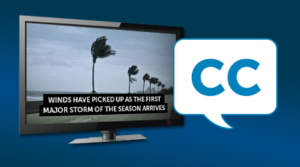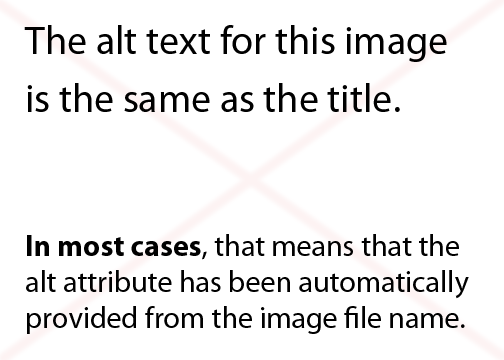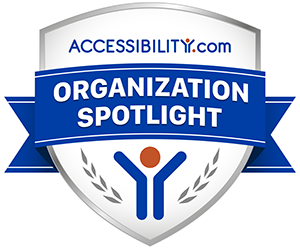I just picked up my flight ticket in the airport. I walked to the gate, excited for my travel to England. I was so excited to watch new movies on the plane. I hadn’t watched any new movies recently. Finally I got an opportunity to catch up with movies and TV shows on the flight. I sat down in the seat and saw a TV screen in front of me. I turned it on and looked for a movie that I wanted to watch. I clicked “play” and then I looked to see whether it had closed captions (CC). Not surprisingly, there were no CC on the TV. I was a bit disappointed. I asked myself “What am I supposed to do during the flight?” There were newer movies but there were no CC. I believed that they should have automatic captions.
Why do I need Closed Captions in general? I was born Deaf in both ears. I do enjoy watching movies and TV shows. I love traveling. When I watch TV shows and movies, I rely heavily on the captions. Captions give me an opportunity to enjoy what social media is saying. It helps me to know why some audiences are laughing and why some audiences are scared. Otherwise, I feel like I’m the only person who doesn’t understand while people around me know what is going on in the TV shows and movies. It frustrates me because it is 2022. Some airlines still don’t provide what I need to enjoy my traveling.
Not only don’t some means of transportation provide access to recreation, but they also don’t provide captions for important communications. Most of them have voice announcements and warnings but that doesn’t benefit everyone. Some deaf individuals including myself need visual information to know what’s going on — for example, at the train, if we can’t hear announcements or warnings that could affect our safety and our well-being. I could miss my stop. I could be confused with sudden changes or delays without explanation. This is not accessibility, nor is it safe. I need closed captions to fulfill my travel opportunities.
There’s a law that protects my right to access in various areas. The law is called Americans with Disabilities Act (ADA). ADA was signed into law on July 26, 1990, by President George H.W. Bush. The law protects people with disabilities from discrimination in almost all settings. The ADA prohibits discrimination against people with disabilities in several areas, including employment, transportation, public accommodations, communications and access to state and local government’s programs and services. The ADA protects my right to receive information through accommodations and to enjoy equal opportunity just like other audiences. The law applies to the government, schools, and many employers. It also applies to anyone who offers goods and services to the public. This includes restaurants, stores, and even websites. But there are areas the ADA doesn’t reach, like someone’s home or other private settings. Private clubs and religious organizations are also exempt.
Having a disability should not hinder you from getting appropriate information that you need. If you’re looking for support or more information, check with BRIDGES.

 CC
CC




